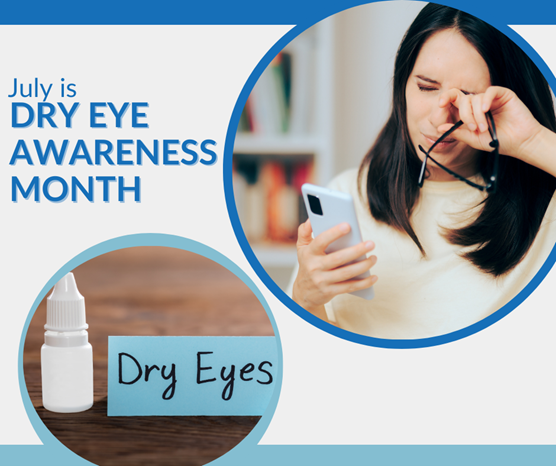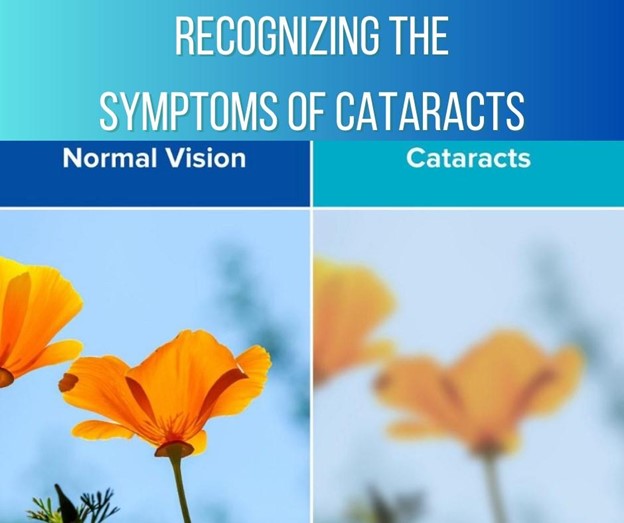July is Dry Eye Awareness Month
Posted by: Raleigh Ophthalmology in Eye Health
July is National Dry Eye Awareness Month. It’s important to understand that dry eye disease, a multifactorial condition, affects a significant portion of the population, with an estimated 25 million people in the United States alone. Despite its prevalence, it’s often under-recognized and under-diagnosed. We aim to equip you with the knowledge that could make…
Read MoreRaleigh Ophthalmology Summer Newsletter
Posted by: Raleigh Ophthalmology in Newsletter
Dr. James Constans is leaving Raleigh Ophthalmology, effective July 26, 2024. Dr. Constans and his family are moving out-of- state to be closer to their extended family. While we are sad that Dr. Constans is leaving Raleigh Ophthalmology, we wish him and his family the very best! Dr. Chong and Dr. Dickens continue to accept…
Read MoreJuly is UV Awareness Month
Posted by: Raleigh Ophthalmology in Eye Health
We welcomed summer last week, and this week, we celebrate National Sunglasses Day on June 27, 2024. As we approach July, which marks UV Safety Month, it’s a perfect time to grab your best sunglasses while you are out and about to enjoy your favorite summer activities. Did you know it wasn’t until the 1900s…
Read MoreYour Eyelashes Are More Than Just For Beauty
Posted by: Raleigh Ophthalmology in Eye Health
Eyelashes are not just a popular beauty trend. They are a vital part of our eye health, acting as a protective barrier against debris, infection, or injury. Understanding their natural growth cycle, which occurs every six to ten weeks when they replace themselves after a few are lost, is key to maintaining their health. The…
Read MoreJune is Men’s Health Month
Posted by: Raleigh Ophthalmology in Eye Health
June is Men’s Health Month, and it’s worth noting that Men’s Health Week, celebrated from June 10 – 16, 2024, falls just before Father’s Day. This timing is significant as it presents a unique opportunity to focus on men’s health, particularly eye health, during a time when the importance of men in our lives is…
Read MoreJune is Cataract Awareness Month
Posted by: Raleigh Ophthalmology in Eye Health
June is a significant month for us as it’s Cataract Awareness Month. Our eye doctors, in collaboration with Prevent Blindness, are committed to raising awareness about cataracts, one of the leading causes of treatable vision loss in the United States. According to Prevent Blindness, over 24.4 million Americans will develop cataracts. As the American population…
Read MorePrevention Tips for Eye Emergencies When Traveling
Posted by: Raleigh Ophthalmology in Eye Health
According to AAA, 43.8 million Americans will travel 50 miles or more from home this Memorial Day weekend. This is a 4% increase over 2023, just shy of the record set in 2005. If you and your family plan to travel this Memorial Day weekend, we wanted to give you a few tips to prepare…
Read MoreFireworks Eye Safety Tips
Posted by: Raleigh Ophthalmology in Eye Health
As Memorial Day, the official pre-summer kickoff holiday, approaches, it’s crucial to remember that fireworks can pose severe risks, potentially harming not just you but also your loved ones. Did you know that 65% of all fireworks injuries involve bystanders, and 19% of those injuries affect the eyes? These statistics underscore the need for caution…
Read MoreMay is Ultraviolet Awareness Month
Posted by: Raleigh Ophthalmology in Eye Health
May is Ultraviolet Awareness Month, and as the weather gets warmer, many of us are anticipating fun in the sun to enjoy the outdoors. Before enjoying this season’s warm weather, are you ready to shield yourself from harmful UV rays? Spending extended hours under the mid-day sun or in UV-rich surroundings, be it at the…
Read MoreRecognizing the Symptoms of Cataracts
Posted by: Raleigh Ophthalmology in Eye Health
The eyes are often referred to as the windows to one’s soul. They are also the primary tools we use to navigate the world around us, from driving to reading to seeing the faces of those we love. However, as we age, the proteins in our lenses can start to clump together, leading to symptoms…
Read More









